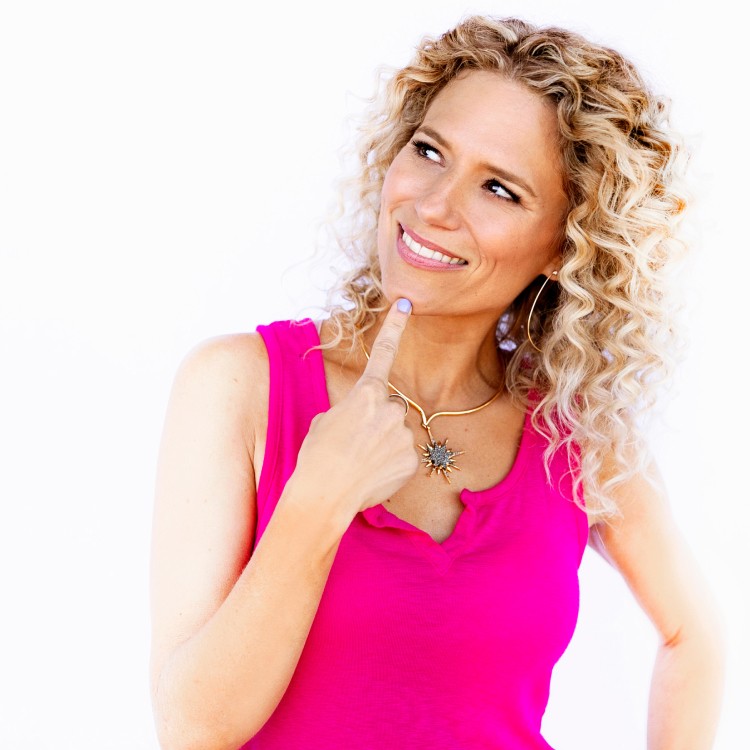Health Coach Certification
Is Health Coach Certifaction the right path for you? Read on to learn more!
Considering Becoming a Health Coach?
If you’re considering becoming a Health Coach, you might be confused about certification and whether or not it’s something you need to become a successful Health Coach. It can be a bit difficult to understand, so we’re going to explain it all to you!
Before we begin, you should first understand what it means to be a certified Health Coach. Certification is the process by which a future coach receives the training that enables them to coach professionally. Graduates of a training program typically receive a certificate or other formal documentation that proves they’ve successfully completed the training and now have the necessary skills and expertise to work with clients. The certification is provided by the organization that conducts the training.
There are three major advantages to becoming a certified Health Coach. Completing a certification program will prepare you to:
WORK WITH CLIENTS
Be confident in your ability to work with clients in real life and help them achieve lasting results.
SUCCEED
Build a successful career that provides you with the flexibility and freedom to work the way you want to.
SHOW YOUR HARD WORK
Show clients and colleagues proof that you’ve been through a rigorous training program.
Got it? Great! Now we’re going to talk specifics and fill you in on what it means to be a certified Health Coach and whether or not it’s the right path for you.

Do You Have to Be a Certified Health Coach?
Accreditation, credentialing, and certification—oh my! These phrases are often used interchangeably, but it’s important you understand what each of them means.
Accreditation generally refers to the official authorization given by a governing body to schools and programs.
Credentialing and Health Coach certification (which, for our purposes, can be used interchangeably) refers to the process by which individuals who have completed a Health Coach training program and the organization providing the education deems able to coach professionally and utilize the education that is being provided.
Well, there is some confusion on a broader level about which schools are accredited and the types of “official” documents they can award to their grads. The International Consortium for Health & Wellness Coaching (ICHWC) addresses this issue and is in the process of instituting a national board certification for Health Coaches.
This might seem like a great idea, but the problem comes down to the requirements that each program might be required to meet. If a school wants to be approved by the ICHWC, they’ll have to provide certain kinds of curriculums in order to make their grads eligible to take a national certification exam.
When it comes to Health Coaching specifically, a school shouldn’t just teach future coaches to be Health Coaches, it should also prepare them to build a successful career and make a great living.
That’s why at Health Coach Institute, we place just as much value and emphasis on the business training component of our Become a Health Coach training program as we do on our coaching curriculum. We want our students to be able to make a great living and thrive. Because the truth is, in today’s economy, if you have coaching skills without business skills, you cannot thrive. It’s as simple as that.
It’s our belief that the business of Health Coaching should be as important as the art and science of Health Coaching, and that a national certification process should make that business training a program requirement.
So what’s the bottom line? Health Coaching is expected to see an incredible growth rate in the next seven years, so conversation about national standards, licensing, and certification will be ongoing and evolving. But you don’t have to be intimidated!
Remember, you don’t have to have any type of specific certification to practice as a Health Coach, but we do want to reiterate that certification is important and can help you achieve greater career success on a number of levels.
Whether you end up in an academic degree program, a program that drives you toward taking the national certification exam, or a state-licensed program, you will be able to work—and thrive—as a Health Coach!
What Should You Look for in a Health Coaching Certification Program?
If you want to become a certified Health Coach, you’ll need to start by choosing a training program.
Education is changing rapidly on all fronts due to an increasingly remote workforce and today’s culture of evolving technology. Not so many years ago, the only opportunity students had to get an education was to be in a physical classroom with a teacher, and employment was obtained by graduating from a four-year university with a pricey degree.
But now, more and more students are learning remotely (and on their own schedules) through institutions and organizations outside of a traditional school or university setting. People are creating amazingly successful careers with a variety of different certificates and licenses, and varying degrees of experience!
So while the specific regulations about certification, accreditation, and licensing are still being sorted out, you can choose which type of Health Coach training program is best for you and the career you want to build.
There are a lot of different factors to consider when you’re choosing a training program, so we’ve put together a list of the six main areas of inquiry you should consider when choosing a Health Coaching school.
What to consider when choosing a Health Coaching School:
-
Personal Motivation First, give some real thought to why you want to become a Health Coach and how you want to help people. Are you passionate about health and wellness? Do you have your own health journey that’s given you a fresh perspective that you can’t wait to share? Whatever your reasons, you should find a program that will enable you to enhance your passion and experience in order to help clients.
-
Cost A training program is an investment in your future. So you should carefully consider what each school offers and what you can afford. A good school will have financing options and will work with you to achieve your goals.
-
Curriculum Whichever program you choose should have a thorough curriculum that prepares you to work with clients and run a business. It should also offer mentorship and hands-on training. As you do your research, look through course catalogs, read everything they offer on their website, and ask lots and lots of questions!
-
Mode of Education These days, there are as many options for learning as there are different technologies. You might want to attend classes in person or you might want the flexibility an online school offers. You might want to have the option of listening and watching material, or maybe you’re comfortable just reading. Be sure to choose a school that delivers materials in a way that fits well with your learning style and strengths.
-
Practical Training A great program will give you the tools and knowledge necessary to work with clients in real life. After all, you need to feel confident that you can work with real people and their very real issues! In fact, we think this is so important that we don’t recommend even considering a program that doesn’t offer a hands-on training component.
-
End Game Is it important to you that you have a degree, certificate, or accreditation at the end of your training? It’s certainly a way to showcase your accomplishments, but it’s important to remember that there are a number of different paths you can take to become a successful Health Coach.

What Does a Certified Health Coach Do?
Now that we’ve covered the basics of how to become a certified Health Coach, you’re probably wondering what a career as a Health Coach looks like in practice.
Health Coaches help clients identify the areas in their life—specific to health and wellness—that they want to improve. They might want to lose weight, change their diet to address chronic health issues, improve fertility…the list is endless!
Speaking of healthy habits… we believe Health Coaches are Masters of Habit Change™. It’s can be incredibly hard for people to make changes that stick (even when they badly want to) because we’re creatures of habit! A Health Coach’s role is to work in close partnership with clients to break unhealthy habits and thought patterns, and replace them with healthy ones that serve them for life.
Health Coaches help their clients develop action plans to create new habits and achieve their health and wellness goals. They can also work in partnership with the client’s doctor to implement medical plans and help the client stay on track.
Health Coaches can work with clients in any way that works for both the client and the coach—whether that’s virtually or in person, or in an individual or group setting!
A virtual Health Coach works with clients online, typically meeting with clients via phone, email, or video. Alternately, some Health Coaches offer face-to-face sessions, where they meet with clients in an office, coffee shop, or other neutral location.
Before a session concludes, Health Coach and client will decide together what action step (or steps) make sense to work on before the next session. The coach may also give the client homework to help the client keep up the positive momentum between sessions. Typically, the coach will also touch base at some point between sessions to see how the client is doing and if they need any additional support.
One last thing to know about Health Coaches is that some choose to work with clients in one specific niche. A Health Coach might want to focus their business exclusively on helping women lose weight, for instance. Or perhaps, they want to help working professionals manage stress. The opportunities are endless!
At Health Coach Institute, we train holistic Health Coaches to help clients address their health on a holistic level, meaning we help clients transform in mind, body, and spirit.
Recap: How to Become a Certified Health Coach
Whatever your vision is for your future career as a Health Coach, the most important thing to note is that you have the flexibility and freedom to turn your unique dream into a reality.
We’ve thrown a lot of information at you here, so to recap, here are the 3 steps to get started as a certified Health Coach:
-
Step 1 Decide which holistic Health Coach certification will best help you achieve your goals and dreams.
-
Step 2 Choose a school that suits your needs, strengths, and preferred mode of learning.
-
Step 3 Launch an exciting career helping clients transform their lives.
Easy, right? In essence, yes. Of course, there’s plenty of work involved, but the path to becoming a Health Coach is absolutely achievable. And the beauty of the profession is, you don’t need to spend years in school or obtain a fancy degree to launch a successful career. All you need is a passion for health and helping others (which you already have!), and the right training program, and you’ll be well on your way to becoming a certified Health Coach!
If you’re ready to learn more about how we train future holistic Health Coaches at Health Coach Institute, we invite you to contact a Clarity Coach today to discover if our training program is right for you!
Health Coach Certification Reviews
Join a heart-based community that will support, challenge, and push you to become the best version of yourself.

About Our Accreditation
Our Become a Health Coach program is CCE-accredited by the International Coach Federation—the leading global organization dedicated to advancing the coaching profession. We’re also proud to be recognized as an approved training provider by the Canadian Health Coach Alliance, Federation of Holistic Therapists, and the International Institute for Complementary Therapists.
JOIN HEALTH COACH INSTITUTE

